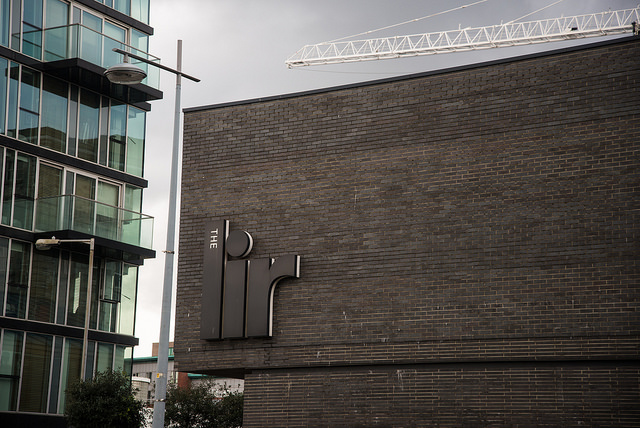The Lir Academy, Ireland’s National Academy of Dramatic Art, has reduced its accumulated deficit by €17,400.
The academy’s accounts for 2015/16 show that the deficit, which arose from startup costs associated with the academy, stood at €271,859 at the end of the September 2016 financial year. While accounts are not yet available for the year ending September 2017, the deficit was due to be cleared by then.
The Lir’s income also increased, with the figure rising from €1,835,862 in 2015 to €1,983,405 in 2016. The eight per cent increase is owed, in part, to an increased number of students entering the academy, including those doing short courses.
In the company’s directors’ report, its members expressed confidence that “the necessary structures and resources are in place to realize the company’s original strategic objectives”. The Lir’s Strategic Plan 2016-2021 – which was approved by the College Board – includes an enhanced fundraising capacity, additional income streams and new courses.
Established in 2011, the Lir was created to answer a growing demand for trained professionals for the theatre, television and film industries in Ireland. Associated with the Royal Academy of Dramatic Art (RADA) in London, the academy offers undergraduate, postgraduate and short courses across a broad range of areas, including acting, lighting and stage design. With staff consisting of industry professionals, courses offer an introduction to aspects of the industry as well as undergraduate degrees.
The increase in income also saw an increase in expenditure. Speaking to The University Times, Seána Skeffington, Marketing Manager at the Lir, explained that “the majority of the increase in promotion relates to a marketing campaign in North America”.
Staff costs also went up, as the number of people employed by the company increased from 30 to 31 in 2015. The academy spent €814,880 on wages, with another €84,083 going on social welfare costs. The total of €898,963 was nearly €70,000 more than the year before.
Increases in consultancy and teaching fees were ascribed to an increase in the number of short courses, according to Skeffington, as well as an increase in teaching staff on the undergraduate programme in stage management and technical theatre. Increases in general operating expenses, which went up by €13,120, was due to “minor increases across a number of budget lines”.
The Lir, a not-for-profit organisation, marked its fifth full year of operation in 2016. It delivers six full-time courses at undergraduate and postgraduate level. In the directors’ report for the year ending September 2016, significant events that were noted included the launch of the Junior Academy, a course for 15 to 17-year olds who demonstrated exceptional talent. Two technical short courses, an introduction to stage management and technical theatre as well as technology and the stage, were also launched.
The Lir also entered into a new three-year agreement with RADA, which acts as an international advisor. The Lir at Work, a corporate training initiative, was announced as part of the relationship with RADA. The company also provides bursaries to students in need of assistance, launching its first-ever postgraduate scholarship, the Patricia Leggett Playwriting Scholarship.
The first degree students from the Lir graduated in 2014 with a Bachelor in Acting. Speaking at the time, the former Academic Director at the Lir, Brian Singleton, said that it was “a momentous occasion for the Lir and Trinity”. The academy is housed in a custom-built building on Grand Canal and has steadily grown in size and reputation since opening in 2011.







